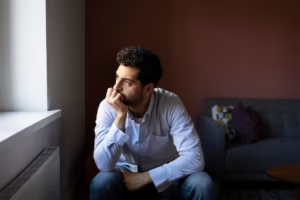Decoding Desire: What Our Sexuality Is Really Trying to Tell Us
Like many sex therapists before me, I came to this field with the simultaneous need to investigate my own sexual dilemmas and to avoid them by focusing on the sex lives of others. I admit to my own voyeuristic jolt of energy when I get a peek behind the curtain at the taboo.
Perhaps growing up in an environment that both shunned and acknowledged sex made me inherently curious. Probably, if my school had chosen to educate me on this natural function rather than making me squirm in its presence, I would have become an attorney, as my parents had wanted me to, and that would have been that.
But when my sister, Stephanie Iris Prezant, died in a rock climbing accident in 2012 and death showed up extremely out of order when I was just twenty years old (prime sexual young adulthood), I was swept up in an erotic grief I couldn’t name. I became what a therapist would later label as hypersexual – engaging in any sexual act I could consent to. While I was in the deepest of grief, my sexuality felt as if it were running away from me. Of course, I couldn’t discuss this with anyone. What could someone say that could explain the most profound horniness that arose out of a grief that gripped my soul? So instead, the shame mounted, and sexual proclivities doubled, and tripled, until I found myself in the office of a sex therapist convinced I was a sex addict, a deviant, who must be stopped.
“Wow,” my therapist began, “I can see your concerns. Let me ask you – what sexual activities are you doing that you’re concerned with?”
I confessed through tears everything, as if I were in a confessional box. I listed it all, prepared to hear the worst. She would have to refer me to a group, a specialist, an exorcist. How could I be so stupid? Telling this kind therapist all of my transgressions when my sister had just died? If the tears didn’t indicate my shame, she might have assumed I had none. My hands were shaking, my eyes averting her gaze as I awaited her condemnation. The fear and pain lodged in my throat, and I went silent. She looked at me and said:
“Sounds fun.”
Those two words began a transformation for me. It shifted me tectonically both in my therapist’s office and in my world. After this session, I finally began to explore my grief. Not just the sadness which had become a familiar friend, but my anger and my resentment and my jealousy and my longing and my fear and my hate and my love and my hope that my sexuality was trying to show me. I learned that our sexualities often carry messages about our deepest fears and longings – about connection, mortality, meaning, and control. When we’re brave enough to listen to what our sexuality is trying to tell us, rather than judging it, we discover pathways to more authentic living.
Sex is often a communicator for our deepest existential concerns. I see this every day in my practice, working with couples who usually describe the death of a sex life. What I aim to do with every couple is to help them acknowledge their paradoxical existential dilemmas and grieve with them over the pain of letting go of false expectations. Just as with grieving over a loved one, I help them allow in more room for a new paradigm. When there’s more room, there is more creativity, flexibility, and openness. My goal is to help them shift to this place, so that, yes, they’re having better sex, but they’re really living more meaningful lives.
We can only have more meaningful lives when we have more meaningful relationships. When we allow ourselves to listen to what our sexuality is communicating to us, rather than shame and pathologize ourselves, we can move from surviving in this life to truly thriving.

Contact Me
Let's Get in touch.






